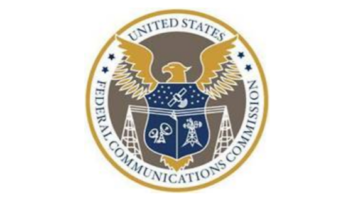The author is editor in chief of Radio World.
The consent decree announcements involving online political files keep rolling out from the Federal Communications Commission. Radio World has learned that more than 2,100 radio stations in the United States now are covered by these agreements, which require station owners to put compliance plans in place.
The latest examples include Major Broadcasting Corp. for WYGO(FM) in Madisonville, Tenn.; Custer County Community Broadcasting for KMTA(AM) and KYUS(FM) in Miles City, Mont.; and San Luis Valley Broadcasting for stations KSLV(FM) in Del Norte, Colo., and KYDN(FM) in Monte Vista, Colo.
But these broadcasters are in good company. Many similar announcements have been coming out since last July, as we’ve reported, and have involved radio licensees of all shapes and sizes.
I’ve been curious about this project from the start. I reached out to the FCC staff for an update this week.
To start with, a commission spokesperson tells me that to date, the Audio Division of the Media Bureau has adopted approximately 130 consent decrees that cover approximately 250 stations. The stations had their license renewal applications put on hold pending FCC investigations; those holds were later lifted under the consent agreements.
But this doesn’t don’t tell the whole tale, because those numbers exclude the “Big Six” broadcast groups that first entered into consent decree agreements with the FCC last year. Those agreements were brokered with the help of the National Association of Broadcasters, and the FCC’s announcement about them last summer put this overall effort into the public eye.
The six broadcasters — iHeart Media, Alpha Media, Beasley, Cumulus, Entercom Radio and Salem Broadcasting — entered into consent decrees that require compliance reporting for all of the stations they own.
So if we include them, the number of consent decrees is about 136 but the number of stations covered by them is 2,135, including some that had not yet filed their own renewal applications.
It’s hard to give an exact number because in some cases, other owners also entered agreements that included not only stations with pending license renewals but some that had not yet filed. But it’s evident that the program has touched many broadcasters.
The consent decrees generally are all similar. A broadcaster acknowledges failure to comply with the rules for maintaining online political files, and it commits to a compliance plan and to report back later. The broadcaster avoids a financial fine. The FCC ends its investigation and removes the “hold” on the license renewal; it also acknowledges that the pandemic created exceptional circumstances for many broadcasters. (The FCC is not aware of any stations that were denied renewal for other reasons after a hold was lifted.)
To my eye, this program should be considered a success for both the FCC Media Bureau and the National Association of Broadcasters.
The regulator effectively gets the message out that it is serious about enforcing this particular set of rules and laws, with the clear implication that at some point in the future, more costly outcomes can be expected. Broadcasters avoid financial penalties and agree to follow rules they were supposed to be following all along. Meanwhile the industry’s largest broadcast association helps its members (and non-members) come into compliance and avoid fines.
I strongly suspect that failure to maintain political files properly (“derelictions” in the FCC’s language) have been the norm for a long time. So if we accept the premise that the political file rules are justified in the first place (a separate discussion), this outcome is also a win for the folks who developed the FCC’s program to put files online — though I’m sure plenty of broadcasters may have preferred not to have the commission looking directly into their paperwork all the time!
And I’d say that, in our current political climate, anything that tends to make our nation’s political process more transparent is a good thing.
The commission adopted rules requiring broadcasters to maintain public files about requests for political ad time more than 80 years ago. Political file obligations have been part of Section 315(e) of the Telecom Act since 2002. A full-power station’s political file is part of its public inspection file.
[Read more on this topic, “The FCC Can See Your Public File”]
Radio licensees must maintain information about requests to buy broadcast time from or on behalf of candidates for public office, or by an issue advertiser whose ad communicates a message relating to “a political matter of national importance,” and it must make that information available for public inspection.
Stations must place info about requests into their political files “as soon as possible.” Stations must maintain and make available information about all requests for broadcast time made by or on behalf of candidates for public office. And stations must upload the information to their online political files “as soon as possible,” meaning “immediately absent unusual circumstances.”
The commission has written that “It is crucial that stations maintain political files that are complete and up to date because the information in them directly affects, among other things, the statutory rights of opposing candidates to request equal opportunities.”










